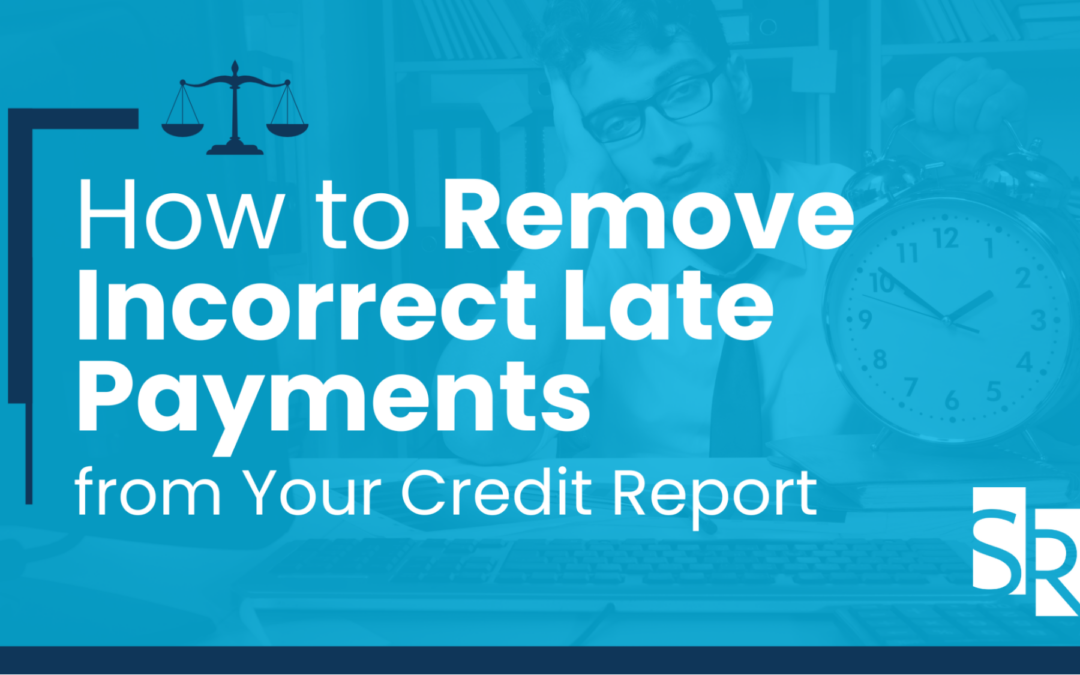No one wants late payments on their credit report. If you spot late payments on your credit report that you do not recognize or were reported because of an error, you have the right to remove them and get your credit report squared away.
Like any incorrect information on your credit report, it takes time to review it, gather evidence of the incorrect information, and take the right steps to restore your credit report back to how it should be.
So, here is how you can remove incorrect late payments from your credit report.
How Do Late Payments Affect Your Credit Health?
A late payment can have a significant impact on your credit health. However, it can depend on where you are starting. For example, if your credit health is top tier and you’ve never missed a payment before, one late payment could cause your credit score to drop significantly. On the other hand, if you consistently miss payments, your credit score will be low on average.
The effect of lay payments on one’s credit score can look different for everyone, but at the end of the day, don’t let incorrect reports skew your credit health.
How Long Do Late Payments Stay on Your Credit Report?
Late payments will have a long-lasting effect on your credit report. They will stay on your credit report for seven years. Fortunately, their impact on your credit report will have less influence over time.
Additionally, closed accounts will stay on your credit report for ten years. So, if you have a late payment in 2015 and then close the account the same year, the late payment would fall off in 2022, but the account itself would not fall off until 2025.
How to Remove Incorrect Late Payments From Your Credit Report
With the significant impact late payments can have on your credit report, you do not want false reports to drop your credit health. While you can not remove accurate late payments from your credit report, there are four steps you can take to remove incorrectly reported late payments.
- Review Your Credit Reports
Take the time to review your credit report. You can do this through the three main credit bureaus: Experian, Equifax, and TransUnion. By doing this, you can see exactly where the errors are and who might have caused them. You can then gather information and evidence so you can dispute these incorrect late payments later on. You can get them for free every week at www.annualcreditreport.com
- Check to See if They Are Reported Accurately
However, throughout this assessment process, while you might not recognize a late payment right away, it does not mean it is not accurate. If a payment is late, even by one day, it will be reported on your credit report. It is essential to take your time and cross-reference your bank statements and credit reports to ensure that the late payments you see are accurate or not. Save your bank statements and checks as proof of payment to include in your disputes.
- File a Dispute With the Creditor
If you have assessed your credit report and come to the conclusion that the late payments are inaccurate, it is time to file a dispute with the Credit Bureaus. Under the Fair Credit Reporting Act, you have the right to file a dispute for free. Send a letter by certified mail, with proof of payment, to the credit bureaus who are reporting you late. They have up to 30 days to review your dispute and handle it. During this time, monitoring your credit for any changes is essential.
- Seek legal help if the dispute process does not work.
If the credit bureaus fail to correct the inaccurate credit reporting, they should put a note on the account that you disputed it. But that won’t get you were you need to be. You should consult an attorney who specifically handles Fair Credit Reporting Cases to seek legal action to have it corrected. Because the Fair Credit Reporting Act allows you to collect your attorneys fees as part of your recovery, the hiring of the attorney should not cost you anything out of your pocket up front.
Stay Alert
Throughout every step of this process, it is essential to stay alert. The only way to avoid the long-term consequences of incorrect late payments is by catching them early. So, for the health of your credit report, stay alert and take advantage of your free weekly credit report checks from the three main credit bureaus.
Additionally, stay alert throughout the investigation process. If the creditors are unable or unwilling to help your circumstance, you don’t need to stand for that. You have the right to a fair credit report under the FCRA. It could be time to contact a consumer law attorney to stand up for your rights.
If you have further questions or have found yourself in this circumstance, contact the team at Stecklein Robertson Law.
